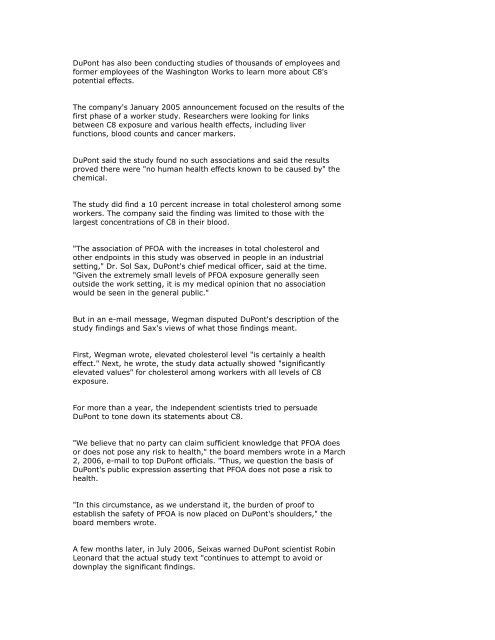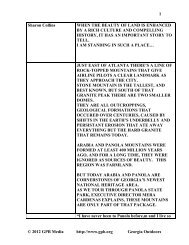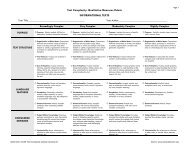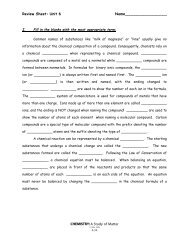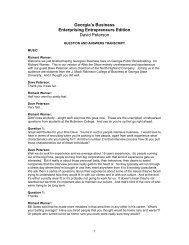PFOA stories
PFOA stories
PFOA stories
- No tags were found...
Create successful ePaper yourself
Turn your PDF publications into a flip-book with our unique Google optimized e-Paper software.
DuPont has also been conducting studies of thousands of employees andformer employees of the Washington Works to learn more about C8'spotential effects.The company's January 2005 announcement focused on the results of thefirst phase of a worker study. Researchers were looking for linksbetween C8 exposure and various health effects, including liverfunctions, blood counts and cancer markers.DuPont said the study found no such associations and said the resultsproved there were "no human health effects known to be caused by" thechemical.The study did find a 10 percent increase in total cholesterol among someworkers. The company said the finding was limited to those with thelargest concentrations of C8 in their blood."The association of <strong>PFOA</strong> with the increases in total cholesterol andother endpoints in this study was observed in people in an industrialsetting," Dr. Sol Sax, DuPont's chief medical officer, said at the time."Given the extremely small levels of <strong>PFOA</strong> exposure generally seenoutside the work setting, it is my medical opinion that no associationwould be seen in the general public."But in an e-mail message, Wegman disputed DuPont's description of thestudy findings and Sax's views of what those findings meant.First, Wegman wrote, elevated cholesterol level "is certainly a healtheffect." Next, he wrote, the study data actually showed "significantlyelevated values" for cholesterol among workers with all levels of C8exposure.For more than a year, the independent scientists tried to persuadeDuPont to tone down its statements about C8."We believe that no party can claim sufficient knowledge that <strong>PFOA</strong> doesor does not pose any risk to health," the board members wrote in a March2, 2006, e-mail to top DuPont officials. "Thus, we question the basis ofDuPont's public expression asserting that <strong>PFOA</strong> does not pose a risk tohealth."In this circumstance, as we understand it, the burden of proof toestablish the safety of <strong>PFOA</strong> is now placed on DuPont's shoulders," theboard members wrote.A few months later, in July 2006, Seixas warned DuPont scientist RobinLeonard that the actual study text "continues to attempt to avoid ordownplay the significant findings.


